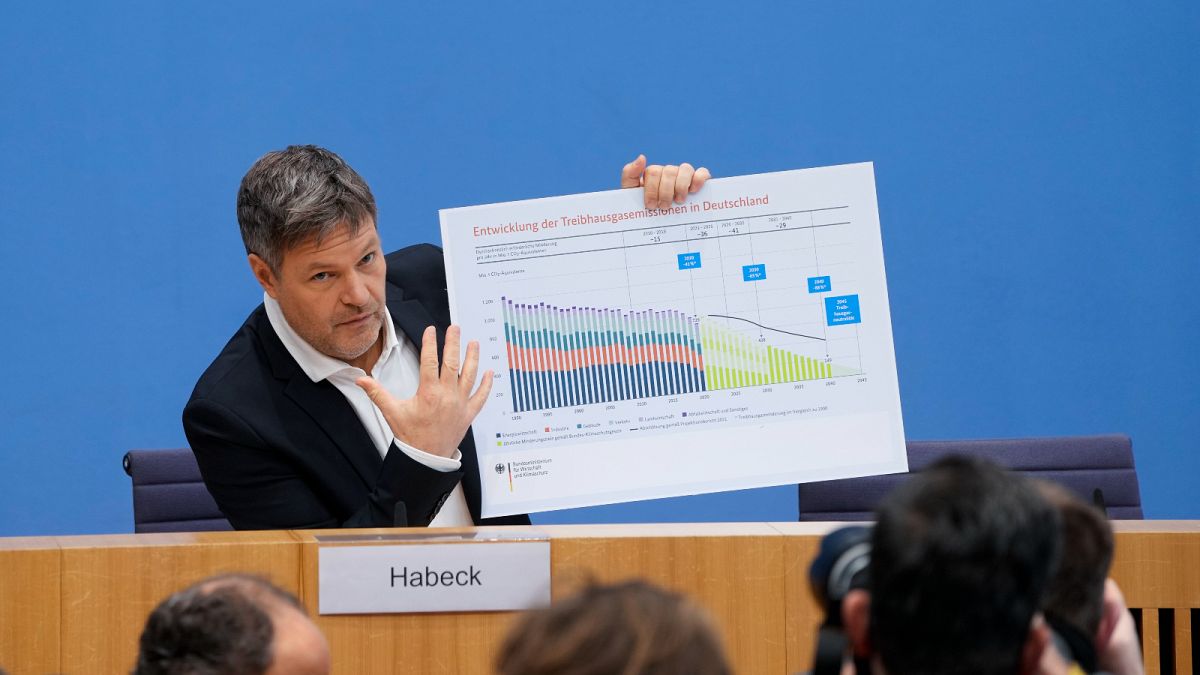Germany's new climate minister said the country is currently on track to halve its emissions by 2030 - far off the government's target of 65%.
Germany's new climate minister, Robert Habeck, said on Tuesday the country faces a "gigantic" task if it wants to achieve its goals for reducing greenhouse gas emissions while ensuring sufficient energy for its energy-hungry industry.
Habeck, a member of the environmentalist Greens, told reporters in Berlin that Germany is currently on track to halve its emissions by 2030 compared to 1990 levels - far off the government's target of 65%.
"If we keep treading this path we are treading, we will see in 2030 even more clearly by how much we are missing our goals. We will then be 15% under our reduction goals so not minus 65% CO2 emissions but minus 50% emissions," he explained.
Pandemic-related effects that allowed Germany to achieve its interim goal of a 40% reduction by 2020 fell away last year, resulting in a renewed rise in emissions for 2021.
One reason for the surge in emissions is the decision to switch off all nuclear power plants by the end of this year, increasing reliance on coal-fired power plants.
Germany's traffic light coalition plans to phase out coal power "ideally" by 2030 as well, filling the gap with less polluting natural gas until enough renewable energy is available to meet the demands of Europe's biggest economy.
The Green politician added that renewable sources such as solar and wind power currently provide about 43% of Germany's electricity, but that share needs to almost double to 80% by 2030.
He noted that electricity consumption over that period is projected to increase significantly as people switch from combustion engine vehicles to electric cars and heating homes with oil to electricity-powered heat pumps.
"You can see the task is big, gigantic," Habeck went on, adding that the country would face a "huge political debate" over the measures needed to achieve the goals.
In the meantime, an alliance of environmental activists placed a power plant made of cardboard in front of the Federal Chancellery to protest against a nuclear comeback in Germany and Europe.
Activists held up a banner reading "Scholz: No green stamp for nuclear and gas", and one activist posed as German Chancellor Olaf Scholz.


